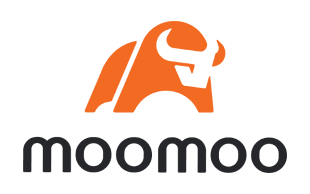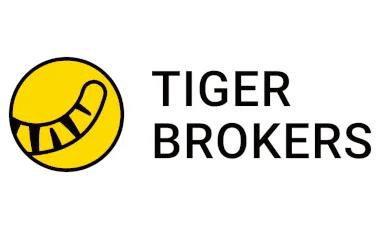Our top pick for
ASX trading

The best stockbroker for you will depend on the exchanges you want to access, your current trading experience, how often you want to trade and the overall fees you will be paying.
You'll also need to decide whether you want an online stockbroker or a full-service broker.
To find the best stockbroker that suits your circumstances you'll need to compare your options. Read on for tips and advice on how you can find the best stockbroker for you.
Our top pick for
ASX trading

Our top pick for
Copy trading

Our top pick for
Beginners

Before you start comparing stockbrokers, it’s first important to understand that there are broadly 2 different types of brokers available: full-service brokers and online brokers.
You may be starting to realise that choosing between a full-service stockbroker and an online broking service isn't always a clear-cut decision.
| Response | |
|---|---|
| I do not use any investment services | 47.34% |
| Share trading platform | 32.84% |
| Financial advisor | 10.74% |
| Micro-investment app | 8.91% |
| Cryptocurrency exchange | 7.86% |
| Portfolio management service | 3.93% |
| Robo-advisor | 3.84% |
| Full-service stock broker | 2.97% |
| Other investment app | 2.88% |
| CFD trading platform | 2.45% |
For online brokers, you will be paying between $3-$30 per trade in brokerage fees. In some instances you can get cheaper brokerage depending on what country stocks you invest in and who you've signed up with.
Full-service brokers also vary but will be more expensive, with brokerage fees typically starting from around $70–$200. Brokerage fees are usually charged as a percentage of the total buy or sell transaction amount. You may also be charged an annual management fee, which may also be charged as a percentage of your total portfolio or a flat fee.
You'll need to sign up to a broker if you want to invest in the stock market, whether that's an online stock broker or a full-service stock broker.
While there are some very cheap online stock brokers (investment platforms) that make it possible to start trading from just a few dollars at a time, full-service brokers might not be worth it unless you plan to invest a large sum.
Full service brokers usually charge management fees along with the brokerage fees. So even if you don't make any trades, you'll still need to pay an ongoing annual fee.
For instance, Morgan Stanley charges an account administration fee of $352 and an account maintenance fee of $3,498. These annual fees will likely only be worth it if the broker is able to make that money back for you through personalised advice, or if the income (such as dividends) earned on your large stock portfolio far exceeds that.
If you’ve decided you want a full-service stockbroker to help you make the right share trading decisions, consider these factors when comparing brokers:
Compare the investments that different brokers can advise you on and help you trade, such as shares, warrants, options, futures and more.
Compare the fees charged by stockbrokers for the services they offer. Is there a flat fee or a fee charged as a percentage of the transaction amount? Does the fee vary depending on the size of the transaction? Fees for full-service brokerages can range enormously, anywhere from $70 – $300 per transaction.
Make sure you’re fully aware of the services your broker provides. Will they offer advice and then execute the trades you instruct them to, or will your broker be authorised to trade on your behalf.
Some broking firms may have specialist areas of knowledge, for example, the resources sector, which may be worth considering if you are looking to concentrate your investments in specific industries.
There may be a minimum amount that you must invest before you are eligible to access a broker’s services.
Before a full-service broker can offer advice, they must first take the time to understand your financial situation and investment goals. Look for a broker that shows an in-depth interest in your investment needs and asks all the right questions to form a complete picture of your requirements.
Finally, consider how you can contact your broker if you ever have a question about your portfolio. Will you be contacted regularly with updates on the performance of your portfolio? How often will your broker monitor it and will you be informed of any adjustments that need to be made?
There are plenty of full-service brokers available in Australia, some of which also have online share trading platforms if you choose that route. Some of the most popular of these include:
If you’ve decided to sign up for an online broking service, keep the following factors in mind when comparing the benefits and drawbacks of different share trading platforms:
Compare the fees you will need to pay each time you buy or sell a parcel of shares. This could be a flat fee or a percentage of the transaction amount and it could also vary depending on the size of the trade.
It’s free to maintain a basic account with many online share broking services, but some charge ongoing membership fees. Many providers will also allow you to access regular company news, research and analyses if you pay an ongoing monthly fee.
Can you trade shares on the ASX and a selection of other global stock exchanges? Can you trade anything else other than shares through your online account?
Check to see whether the trading platform imposes minimum and maximum limits on your trading transaction amounts.
How easy is each provider’s trading platform to use? Is it simple and intuitive or is it too confusing to place a trade? Many brokers offer free demo accounts that can help you answer these questions.
Compare the market analysis and stock recommendations you can access through each online broker. Will you need to pay an additional fee to access these services?
Can you take advantage of options such as stop-loss orders to create a more advanced trading experience?
Does the provider offer a smartphone and/or tablet app to allow you to trade on the go? Is phone trading also available and, if so, does it attract any extra fees?
Finally, make sure you can access the help you need if you ever have a problem with your account or a particular transaction.
Important: The standard brokerage fee displayed is the trade cost for new customers to purchase $1,000 of either Australian or US shares. Where a platform charges different fees for both US and Australian shares we show the lower of the two. Where both CHESS sponsored and custodian shares are offered, we display the cheapest option.
Best online share trading platforms.
Looking to start investing? Here are our top 6 online trading platforms for total beginners in Australia.
We used Finder's proprietary algorithm to find Australian-listed companies that have strong fundamentals and have a share price under $5.
Best performers included Latitude 66, Cosmos Exploration and Javelin Minerals.
Here are our algorithm-selected 20 Aussie stocks worth watching in 2026.
Here's what investors should know before adding AI stocks to their portfolios.
Find out the different ways you can invest in the S&P 500 index from Australia.
Following a couple of lean years for dividend investors, here are 10 ideas you could consider in your portfolio.
Index funds are a hot topic right now, but how do you actually invest in them?
If you’re thinking of investing in gold, our guide will explain how and where to buy gold in Australia as well as the pros and cons of investing in it.
Find cheap stock brokerage in Australia when buying and selling shares on the ASX and other international exchanges.
I have a couple of interests in and only a small amount of money, I need help putting the shares on. How do I do a put the shares on, it’s not a lot of money
Hi Jillian,
A micro-investing app could be a good place to start – check out some of your options here!
I need to sell my Commonwealth Bank shares. Can you give me a stockbroker’s name and number therefore i can go ahead with my transaction.
Hi Kevin, the broker you choose to sell your shares with depends on what type of shares you hold and your personal circumstances. For more information on this, check out our guide: https://www.finder.com.au/share-trading/how-to-sell-shares